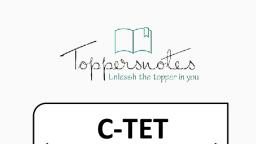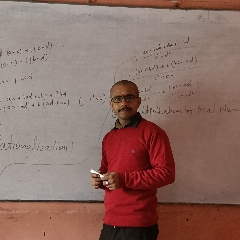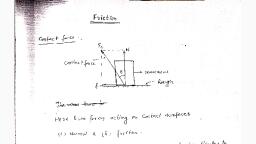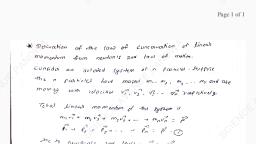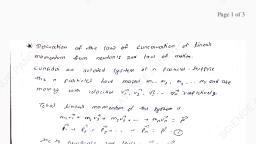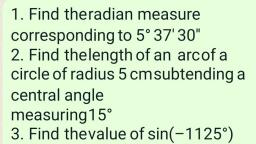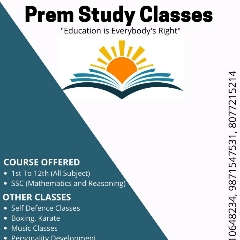Question 1 :
Multiple Choice Questions<br/>The equation $\cos 2x+a \sin x=2a-7$. has a solution if
Question 2 :
Find the value of $\dfrac{sin (-660^o) tan (1050^o) sec (-420^o)}{cos (225^o ) cosec (315^o) cos(510^o)}$
Question 3 :
If $(1 - \cos A)/2 = x$, then the value of $x$ is
Question 5 :
The value of $\sin { \left( {{ 45 }}^{o} +\theta \right) } -\cos { \left( {{ 45 }}^{o} -\theta \right) } $ is
Question 7 :
If in a $\triangle ABC,\triangle=a^2-(b-c)^2$, then tan A is equal to
Question 9 :
If P = cos $\dfrac {\pi } {20} .cos \dfrac {3\pi } {20} .cos\dfrac {7\pi } {20} . cos\dfrac{9\pi } {20} $ & Q = cos$ \dfrac{\pi } {11}. cos\dfrac{2\pi } {11} .cos\dfrac{4\pi } {11} . cos\dfrac {8\pi } {11}. cos \dfrac {16\pi } {11}, then \dfrac {P} {Q} $ is
Question 11 :
In a triangle $ABC$, if $\sin { A } \sin { B } =\dfrac { ab }{ { c }^{ 2 } } $, then the triangle is
Question 12 :
Given that A is positive acute angle and $ { sin }^{ }A=\dfrac { \sqrt { 3 } -1 }{ 2 } ,$ then A take the value (s)-
Question 13 :
If $\tan \left( {\dfrac{\pi }{4} + x} \right) + \tan \left( {\dfrac{\pi }{4} - x} \right) = a$, then ${\tan ^2}\left( {\dfrac{\pi }{4} + x} \right) + {\tan ^2}\left( {\dfrac{\pi }{4} - x} \right) = $
Question 14 :
If $ \displaystyle \tan \Theta =\frac{3}{4}and 0<\Theta , < 90^{\circ} $ , then the value of $ \displaystyle \sin \Theta \cos \Theta $ is
Question 16 :
If $x=\sec \phi -\tan \phi$ & $y=\ cosec \phi +\cot \phi$, then
Question 17 :
As $\theta$ increases from $\cfrac { \pi }{ 4 } $ to $\cfrac { 5\pi }{ 4 } $, the value of $4\cos { \cfrac { 1 }{ 2 } \theta } $
Question 18 :
The most general solution of $tan\theta =-1 \,\,\ and \,\,\,\ cos\theta = \dfrac{1}{\sqrt{2}}$ is
Question 20 :
$\cos { \left( \dfrac { 3\pi }{ 4 } +x \right) } -\cos { \left( \dfrac { 3\pi }{ 4 } -x \right) } =\sqrt { 2 } .\sin { x }$<br/>
Question 21 :
The value of $\dfrac{\left( \cos {{ 11 }}^{o} +\sin {{ 11 }}^{o} \right)}{\left( \cos {{ 11 }}^{o} -\sin {{ 11 }}^{o} \right)}$ is
Question 22 :
If $ \displaystyle \sin 50=0.766 $ , then value of $ \displaystyle \sec 40^{\circ} $ is
Question 23 :
The general solution of x satisfying the equation $tan 3x-1=tan 2x (1+tan 3x)$ , is
Question 24 :
The number of value $x$ in the interval $[0,3\pi]$ satisfying the $eq^n 2\sin^2x+5\sin \,\,x-3=0$ is
Question 25 :
In $\Delta ABC$ if $\dfrac{\cos A}{a} = \dfrac{\cos B}{b}$ then it is an isosceles triangle. (With the standard notations.)
Question 26 :
If $\tan { \theta } =3$ and $\theta$ lies in the third quadrant, then the value of $\sin { \theta } $ is
Question 28 :
The value of $\cos { \left( -1044^{o} \right) } $ is $\dfrac{\left( \sqrt { 5 } +1 \right) }{4}$.
Question 30 :
If range of $f(x)=\cos x, x\in \left(\dfrac {-\pi}{3}, \dfrac {\pi}{6}\right)$ is $(a,b)$, then
Question 31 :
If $\tan \alpha = 2$, then the value of $\dfrac{{\sin \alpha }}{{{{\sin }^3}\alpha + {{\cos }^3}\alpha }}$ is
Question 33 :
If tan A = 4 /3, tanB = 1/ 7,then A - B =
Question 34 :
The given expression is $\displaystyle \sin { \theta } \cos { \left( { 90 }^{ o }-\theta \right) } +\cos { \theta } \sin { \left( { 90 }^{ o }-\theta \right) } +4 $ equal to :<br/>
Question 35 :
If $\tan 45^{\circ} = \cot \theta$, then the value of $\theta$, in radians is
Question 38 :
If $sin\Theta =cos\Theta $, then the value of cosec$ \Theta $ is :<br/>
Question 39 :
Find the ratio of the sides of a triangle whose interior angles are $60^o, 60 ^o\ and \ 60^o$ degrees?<br/>
Question 40 :
<div>Change the following radian measure to degree measure:<br/></div>$\cfrac { 3\pi }{ 2 } $
Question 41 :
If in a $\triangle ABC$<br>$\dfrac {2\cos A}{a} + \dfrac {\cos B}{b} + \dfrac {2\cos C}{c} = \dfrac {a}{bc} + \dfrac {b}{ac}$, then $b^{2} + c^{2}$ is equal to
Question 42 :
<div><div>State whether the following statement is true or false.</div></div>If $\cos A+{ \cos }^{ 2 }A=1,$ then ${ \sin }^{ 2 }A+{ \sin }^{ 4 }A=1.$
Question 43 :
The length of the sides of a triangle are $x,y$ and $\sqrt{{x}^{2}+{y}^{2}+xy}$. The measure of the greatest angle is:
Question 44 :
If $\displaystyle \frac{\cos(A+B)}{\cos(A-B)}+\frac{\cos(C-D)}{\cos(C+D)}=0$, then $\cot A\cot B \cot C$ is equal to <br/>
Question 45 :
Value of $\sin ^{ 4 }{ \dfrac { \pi }{ 8 } } +\sin ^{ 4 }{ \dfrac { 3\pi }{ 8 } +\sin ^{ 4 }{ \dfrac { 5\pi }{ 8 } +\sin ^{ 4 }{ \dfrac { 7\pi }{ 8 } } } } $ is equal to:
Question 46 :
If a chord $8$ inches long has an arc of $120^o$, the radius, in inches, of the circle is
Question 47 :
${ a }^{ 2 }\cos { 2B } +{ b }^{ 2 }\cos { 2A } +2ab\cos { (A-B) } ={ c }^{ 2 }$<br>Is this statement true or false ?
Question 50 :
If the equation $\displaystyle \sin ^{4}x-(k+2)\sin ^{2}x-(k+3)=0$ has a solution then k must lie in the interval
Question 51 :
If in a $\displaystyle \Delta ABC, \sin ^{3}A+\sin ^{3}B+\sin ^{3}C=3 \sin A.\sin B.\sin C,$ then the value of the determinant<br>$\displaystyle \begin{vmatrix}a &b &c \\ b &c &a \\ c &a &b \end{vmatrix}$ is<br>
Question 53 :
The general solution of the equation $\sin { \theta } +\cos { \theta } =1$ is
Question 54 :
If $x,y,z$ are in A.P, then $\dfrac{\sin x-\sin z}{\cos z-\cos x}$ is equal to
Question 56 :
Find $x$ in $4\left[ \dfrac{\sec^259^0 - \cot^2 31^0}{3}\right] -\dfrac{2}{3} \sin 90^0+\tan^256^0\tan^234^0=\dfrac {x}{3}$
Question 57 :
In $\triangle ABC, A={15}^{0}, b=10\sqrt{2}$cm the value of $'a'$ for which these will be a unique triangle meeting these requirement is
Question 58 :
If two adjacent sides of a parallelogram each of whose angles is 90$^{\circ}$ be of magnitudes $\sqrt{cos \theta}$ and $\sqrt{sin \theta}$, then the maximum value of the square of its diagonal for all values of $\theta$ is -<br>
Question 59 :
Using the formula<br/>$\displaystyle \sin { \left( A-B \right) } =\sin { A } \cos { B } -\cos { A } \sin { B } $<br/>Find the value of $\displaystyle \sin{ { 15 }^{ o } }$
Question 60 :
The given relation <br/> $\sin \left( {\frac{\pi }{{10}}} \right) = \frac{{\sqrt 5 - 1}}{2}$ is
Question 61 :
In $\Delta ABC$, if $\sin A : \sin C=\sin(A-B):\sin(B-C)$, then $a^{2},b^{2}$ and $c^{2}$ are in <br/>
Question 62 :
If $\displaystyle 0\le x < 2\pi$, then the number of real values of $x,$ which satisfy the equation $\displaystyle \cos { x } +\cos { 2x } +\cos { 3x } +\cos { 4x } =0$:<br/>
Question 63 :
$\triangle ABC$ is not a right angled and is inscribed in a fixed circle. If a, A,b,B be slightly varied keeping c, C fixed then $\dfrac{\delta a}{cos A} + \dfrac {\delta b}{cos B}$ =
Question 64 :
If in a $\Delta ABC, \begin{vmatrix}\sin A\:\:\sin B\:\:\sin C \\ \sin B\:\:\sin C\:\:\sin A \\ \sin C\:\:\sin A\:\:\sin B\end{vmatrix}=0$<div>Then which of the following statement is True?</div>
Question 65 :
<div>Consider the equation $\displaystyle \int_{0}^{x}(t^{2}-8t+13)dt= x \sin\left (\dfrac ax \right )$. If $x$ takes the values for which the equation has a solution, then the number of values of $\displaystyle a\epsilon [0,100]$ are,</div>
